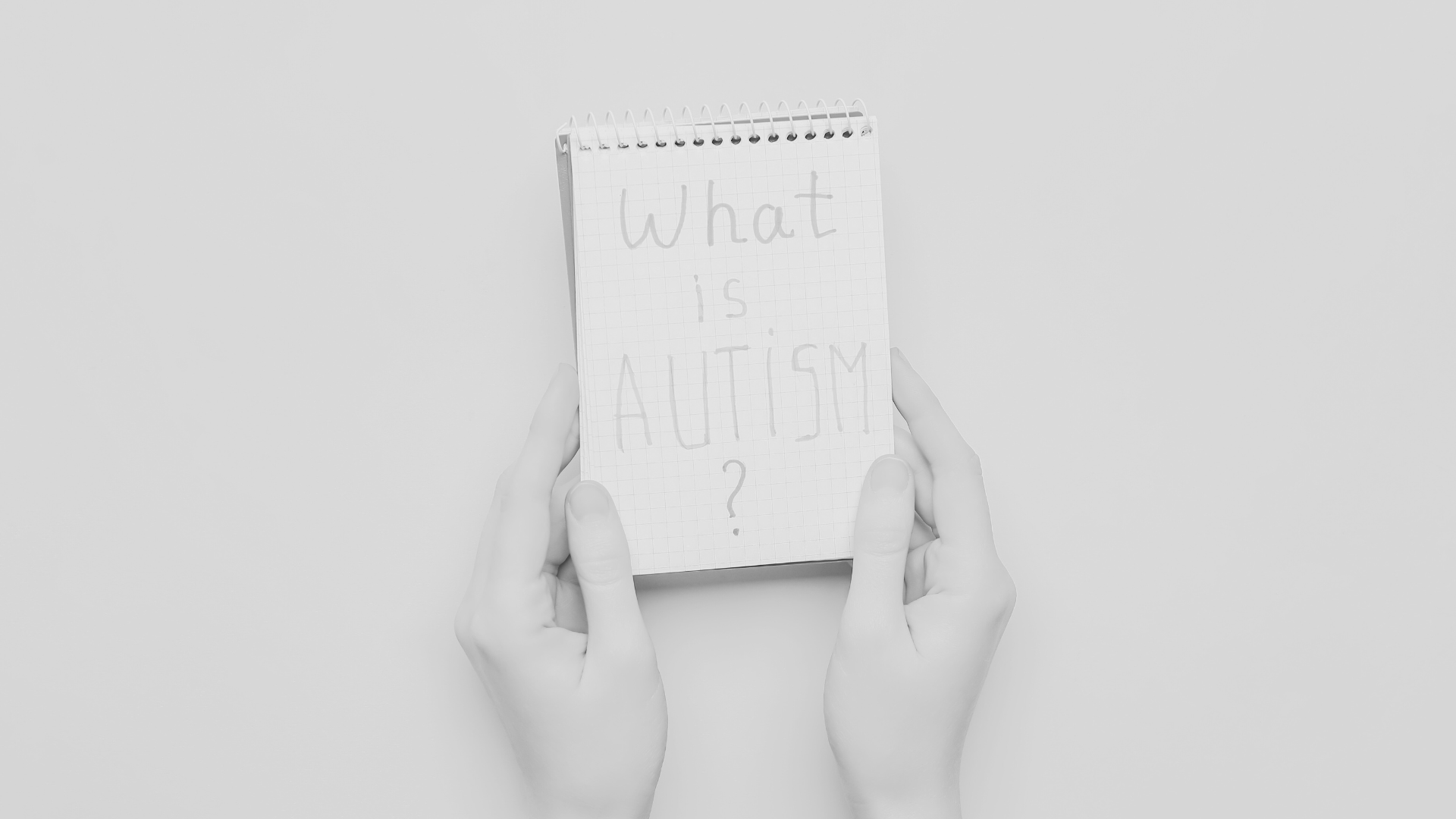
Understanding Autism
You’re Not Alone—We’re Here to Help You Find Answers
If you've found yourself on our website, you may have questions about your child’s development. Perhaps you’ve noticed differences in how they communicate, play, or interact with the world—or a friend, teacher, or family member has raised concerns. You’re not alone, and you’ve come to the right place.
At Orchid Academy, we’re here to help you understand autism, recognize early signs, and take the next steps with confidence. On this page, you’ll find:
What is Autism? A simple, parent-friendly explanation.
Does My Child Have Autism? Early signs and a screening checklist.
Getting a Diagnosis. How to start the process and what to expect.
Early Intervention & Why It Matters. How timely support helps children thrive.
How Orchid Academy Can Help. Personalized therapy options are designed for your child’s unique needs.
Wherever you are in this journey, we’re here to support, guide, and empower you every step of the way.
Disclaimer: Orchid Academy is committed to providing parents with guidance and resources to better understand autism. However, we are not diagnosticians, and this section is not a substitute for a formal evaluation. If you have concerns about your child’s development, we strongly recommend consulting with a pediatrician, psychologist, or developmental specialist who can conduct a professional assessment.
A Parent’s Guide to Early Signs, Diagnosis & Support

Why Early Recognition & Support Matter
Understanding your child’s development is the first step toward getting them the support they need. The earlier autism is recognized, the sooner we can provide tools and strategies that help children thrive. Early intervention can strengthen communication, social skills, and independence, giving your child the best foundation for lifelong success.
If you’ve noticed differences in how your child interacts, plays, or communicates, you’re not alone. Recognizing the signs early allows you to take proactive steps toward understanding their unique needs and ensuring they have the right support to reach their full potential.
What is Autism?
Autism is a neurodevelopmental condition that affects how children communicate, interact, and process the world around them. Every child with autism is unique—some may struggle with speech or social skills, while others may have strong interests, advanced abilities, or sensory sensitivities.
Key Areas of Development Impacted by Autism
Autism is a neurodevelopmental difference that shapes how a child communicates, interacts, learns, and experiences the world. Every autistic child is unique, but autism often affects development in a few key areas. Understanding these differences can help families recognize strengths, navigate challenges, and support their child’s growth.
Below are some common areas where autism may impact development:
-
Some people with autism may have delayed speech, use gestures or alternative communication methods, or develop language in unique ways, such as scripting (repeating phrases from TV or books).
Others may have strong verbal skills but struggle with back-and-forth conversation or understanding nonverbal cues.
-
Autism can influence how a child connects with others. Some children prefer playing alone or find group interactions overwhelming, while others want to socialize but may need support in understanding social rules, personal space, or facial expressions.
-
Many autistic individuals experience the world differently through their senses. Some may be highly sensitive to sounds, textures, or lights, while others seek out sensory input, such as spinning, jumping, or touching different textures. Sensory differences can impact daily activities, from getting dressed to focusing in a busy classroom.
-
Autism can affect how a child expresses and manages emotions. Big emotions may sometimes lead to meltdowns, difficulty with transitions, or seeking routine and predictability.
In some cases, children may engage in behaviors such as eloping (running away), aggression, or self-injurious actions as a way of communicating frustration or sensory discomfort. Understanding the why behind these behaviors helps in creating strategies to support self-regulation.
-
Many autistic children find comfort in predictability. They may have specific routines, repetitive movements (like hand flapping or rocking), or intense interests in particular topics. These behaviors are not problems to be fixed but ways in which they engage with and make sense of their world.
Recognizing the Early Signs of Autism
Every child develops at their own pace, and differences in communication, social interaction, and behavior can be part of normal childhood growth. However, some patterns may indicate that a child could benefit from further evaluation for autism.
Autism presents differently in every individual—some children may exhibit multiple signs early on, while others may show only subtle differences that become clearer as they grow. Below are key areas of development where autism may present differences.
Signs of Autism in Babies & Toddlers (6 months - 3 years)
✔ Limited eye contact or does not respond to their name
✔ Delayed speech or lack of gestures (e.g., waving, pointing)
✔ Does not engage in back-and-forth interactions (e.g., smiling, peek-a-boo)
✔ Prefers objects over people or seems unaware of others' emotions
✔ Repetitive movements (e.g., flapping hands, rocking, spinning)
✔ Strong attachment to routines and distress when they change
Signs of Autism in Preschoolers
(3 - 5 years)
✔ Difficulty playing with peers or engaging in pretend play
✔ Echolalia (repeating phrases or scripts from TV, books, or conversations)
✔ Sensory sensitivities (e.g., covering ears, avoiding textures, seeking movement)
✔ Difficulty following multi-step instructions
✔ Unusual reactions to sounds, lights, or textures
Signs of Autism in School-Aged Children (5+ years)
✔ Challenges with making and maintaining friendships
✔ Struggles with transitions and needs predictable routines
✔ Deep focus on specific topics or interests (e.g., memorizing maps, dinosaurs, numbers)
✔ Difficulty understanding sarcasm, jokes, or figurative language
✔ May seem "in their own world" or have trouble recognizing social cues
Signs of Autism in Teenagers (13+ years)
✔ Prefers structured or one-on-one social interactions over group settings
✔ Struggles with understanding sarcasm, jokes, or social cues
✔ May have strong interests but talks at length about them without back-and-forth conversation
✔ Difficulty managing time, organization, or daily tasks (e.g., forgetting assignments, struggling with prioritization)
✔ Becomes overwhelmed by emotions, leading to meltdowns, shutdowns, or withdrawal
✔ Strong preference for routines and struggles with changes in plans
✔ Sensory sensitivities to lights, sounds, textures, or food textures
✔ Engages in repetitive movements (e.g., fidgeting, rocking, leg bouncing) for self-regulation
✔ May feel socially different but unsure why, or experience anxiety in unpredictable situations
What Autism is NOT
Because there are many misconceptions about autism, it’s important to understand what autism isn’t:
🚫 Autism is NOT caused by bad parenting. Autism is a neurological condition, not the result of parenting styles.
🚫 Autism is NOT an illness or something to be "cured." Autism is not a disease—it’s simply a different way of experiencing the world.
🚫 Autism is NOT always linked to intellectual disability. Some autistic individuals have intellectual disabilities, while others have average or above-average intelligence.
🚫 Autism is NOT always obvious. Many autistic individuals mask or hide their traits, meaning they may appear "typical" in some settings but struggle in others.
🚫 Autism is NOT just a childhood condition. Autism is lifelong—while skills can develop over time, autistic individuals remain autistic into adulthood.
🚫 Autism is not a one-size-fits-all diagnosis—every individual has their strengths, challenges, and ways of learning.
By understanding these differences, we can better support their growth, independence, and confidence.

The Next Steps: Seeking an Autism Diagnosis
If you suspect your child may be autistic, the next step is to seek a professional evaluation. An official diagnosis can open doors to services, school accommodations, and the right support for your child’s unique needs. However, the process can take time, and knowing what to expect can help you navigate it more smoothly.
How to Get a Diagnosis:
Step 1: Speak with Your Pediatrician – Share your concerns and ask for an autism screening referral.
Step 2: Schedule an Autism Assessment – Specialists such as developmental pediatricians, child psychologists, or neurologists can provide a comprehensive evaluation.
Step 3: Access Support Services – If your child receives a diagnosis, early intervention services like ABA therapy, speech therapy, and occupational therapy can help them build essential skills.
Long Waitlists & Private Pay Options
Many families face long waitlists for autism evaluations, especially through medical providers and hospitals. Depending on your location, wait times for an assessment can range from several months to over a year.
Options for Getting a Diagnosis Sooner:
✔ Private Pay Providers – Some specialists offer quicker evaluations for out-of-pocket costs. While this can be an investment, it may provide faster access to therapy and school-based support.
✔ Contact Multiple Providers – Ask about cancellation lists or providers who may have shorter wait times.
✔ Check with Your Insurance – Some insurance plans cover telehealth or out-of-network evaluations.
✔ Pediatricians & Developmental Screenings – Some primary care doctors can do initial screenings and refer you to a specialist.
How Orchid Can Help!
At Orchid Academy, we offer personalized, multidisciplinary autism therapy designed to meet your child where they are. Our approach focuses on:
✔ Building communication skills (verbal and nonverbal)
✔ Strengthening emotional regulation & independence
✔ Developing social connections & play skills
✔ Enhancing early literacy & academic readiness
✔ Providing support at home, in school, or in our clinic
Orchid Academy Programs
-

Full-Time
Dive into our Full-Day Program for an immersive educational experience designed to maximize learning and development through intensive support and a broad curriculum, accelerating progress toward transformative outcomes.
-

Part-Time
The perfect starting point for families new to our approach, offering a flexible educational experience. As families witness the life-changing outcomes, many choose to transition to our Full-Day Program, confident in the greater benefits that await.
-

In-Home
Ideal for clients beginning their journey with us, our In-Home/Community Services provide a comfortable and familiar setting to start building foundational skills. Tailored to each learner's individual needs, this option focuses on direct skill development.
-

After School
Enrich your child’s after-school hours with our program focusing on social skills, academic support, and recreational activities, fostering a well-rounded development in a structured yet fun environment.







